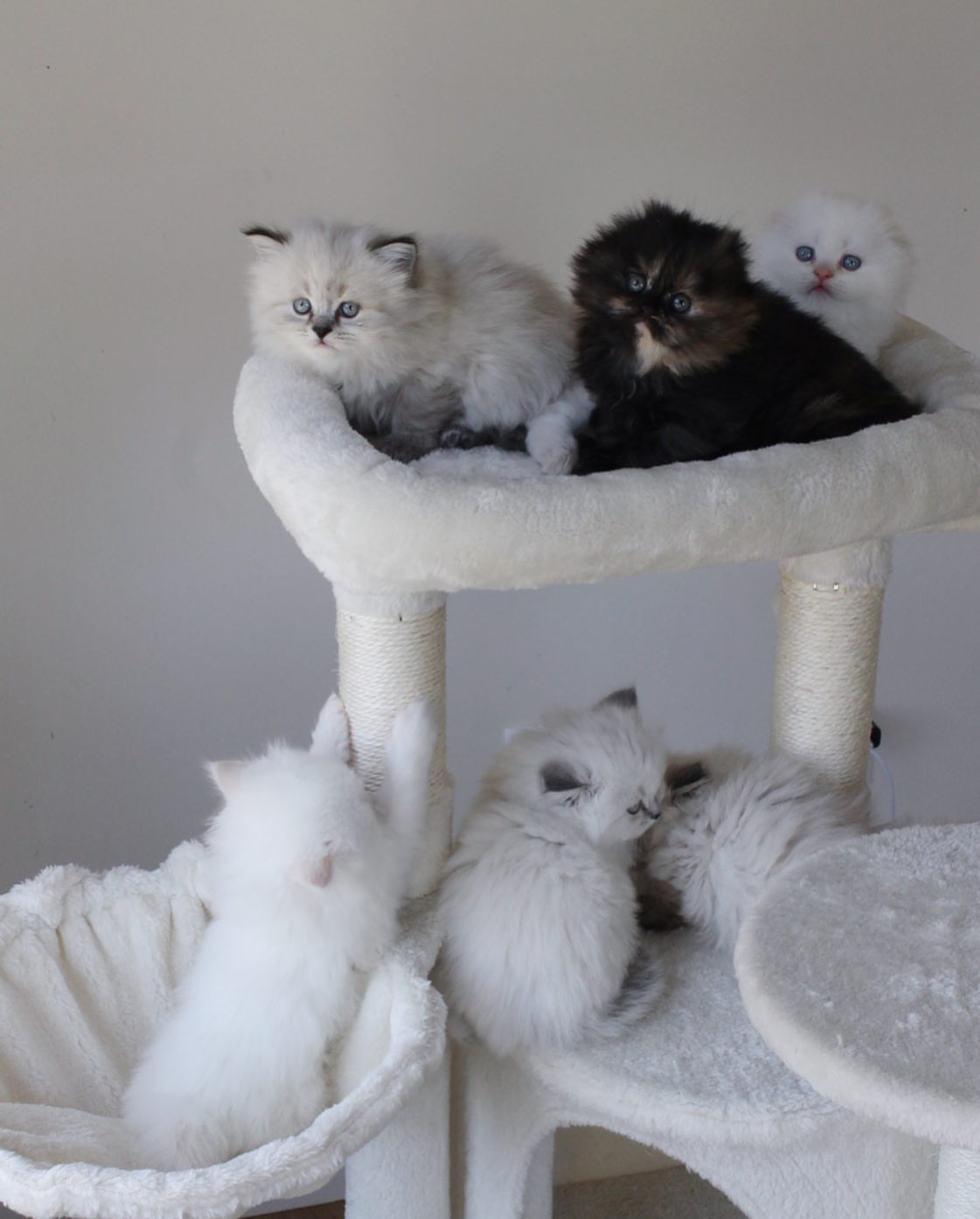Scottish Straight Health
SCottish Straight
SCOTTISH STRAIGHT BREED HEALTH
Scottish Straights are recognized for their outgoing and self-sufficient personalities. They are free-spirited and despise anyone who infringes on their liberty. They are lively and playful cats who enjoy relaxing and cuddling with their owners. Scottish Straights are smart cats that can be taught to do tricks and listen to orders. They are also well-known for being gentle with youngsters and making excellent family pets. The Scottish Straights have an interesting history and origin. They are part of the Scottish breed group, along with Scottish Folds, and are available in both long-haired and short-haired types. The first Scottish Fold was discovered in 1961 on a farm in Scotland, and the breed was recognized by the Cat Fanciers' Association in 1978. Scottish Straights were born in the same litters as Scottish Folds, with the main distinction being the ears. Scottish Straights were once referred to as Scottish Fold kittens who did not acquire folded ears. Scottish Straights are now classified as a unique breed and are popular among cat enthusiasts all around the world.
Polycystic Kidney Disease (PKD), Feline Leukemia (Felv), Feline Immunodeficiency virus (FIV)

Scottish Straight cat are a remarkably resilient breed with few health issues unique to their own breed. They have the same ability to play, run, and jump as a long-legged kitten. The shortest kittens typically don’t climb on high counters as frequently.
First identified in Persian and Persian-cross cats in 1967, polycystic kidney disease (PKD) is an inherited condition. Additionally, it has been identified in Himalayans, Scottish Straight, Exotics, and British Shorthairs. We can show you the results of our breeders’ PKD DNA testing. We only reproduce when those outcomes are evident. The breeders page on our website has DNA proof. Our DNA results are only available to customers who have made a deposit.
VACCINES
Feline Panleukopenia-Herpesvirus-Calcivirus
In the feline population, respiratory viruses are endemic, or present almost everywhere. These vaccinations can be given separately, but they are most frequently given together in a vaccination known as FVRCP or HCP. Your kitten will receive the first FVRCP shot when it is 9 weeks old. For a complete immunization, it is crucial that you receive the second set of FVRCP at 12 weeks. At one year, your kitten needs a booster vaccination. Your cat can receive FVRCP vaccinations every three years after that.
Rabies
A disease that cannot be cured and is spread by animal bites. The rabies vaccination is required by law in almost all states because humans can contract rabies if they are bitten by a rabid animal. Between the ages of 8 and 12 weeks, your kitten should receive his first rabies vaccination, followed by a booster shot a year later. He will then require rabies vaccinations every three years after that (unless annual vaccination is required in your area).
Leukemia
Despite the leukemia vaccine being regarded as optional, the AAFP advises that all kittens receive the feline leukemia vaccination. Two doses of the kitten leukemia vaccine are given, three to four weeks apart. Your veterinarian will advise an annual vaccination against leukemia if your kitten spends time outside. You won’t need to get this vaccination, though, if you only keep him inside. You might want to think about getting the vaccination if you have other cats that venture outside or could interact with your cat.
DECLAWING
WE DO NOT ALLOW DECLAWING!
A contract stating that declawing is not to be done will be required of you. Scratching posts, nail trimming, and nail caps are just a few alternatives to declawing. Search somewhere else if you intend to declaw. Until your cat is older and trained, you might want to consider a different couch if you have leather furniture.
Declawing is already prohibited in Berkeley, Beverly Hills, Los Angeles, San Francisco, and Santa Monica, among other US cities. Malibu issued a resolution denouncing the practice but did not enact a formal ban.
Declawing is already prohibited in the following nations: England, Scotland, Wales, Ireland, Denmark, Finland, Slovenia, Portugal, Belgium, Spain, Brazil, Australia, and New Zealand. It is also prohibited in Italy, France, Germany, Austria, Switzerland, Norway, Sweden, Netherlands, Northern Ireland, and Wales.

FACTS ABOUT FELINE DECLAWING
- Declaw surgery carries a number of risks to one's health as well as potential complications like infection.
- Declawing is the same mutilating procedure for house cats or big cats.
- Declawing is not just the removal of the claws; it is an amputation. The final knuckles of a cat's paw are cut off by the vet, cutting through bone, tendons, skin, and nerves in the process. It is the same as amputating each finger or toe at the last joint in a person.
- Declaw surgery can cause permanent lameness, pain or arthritis.
